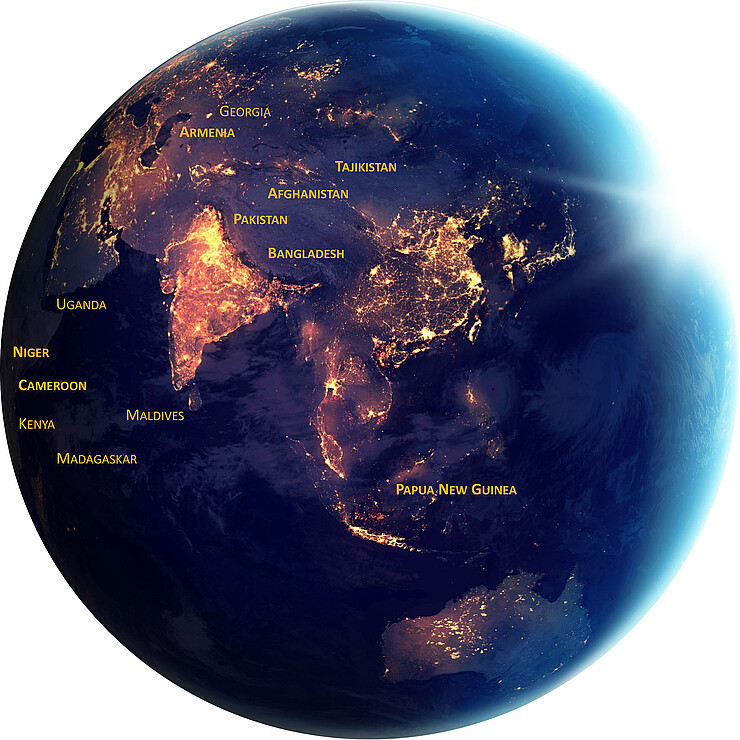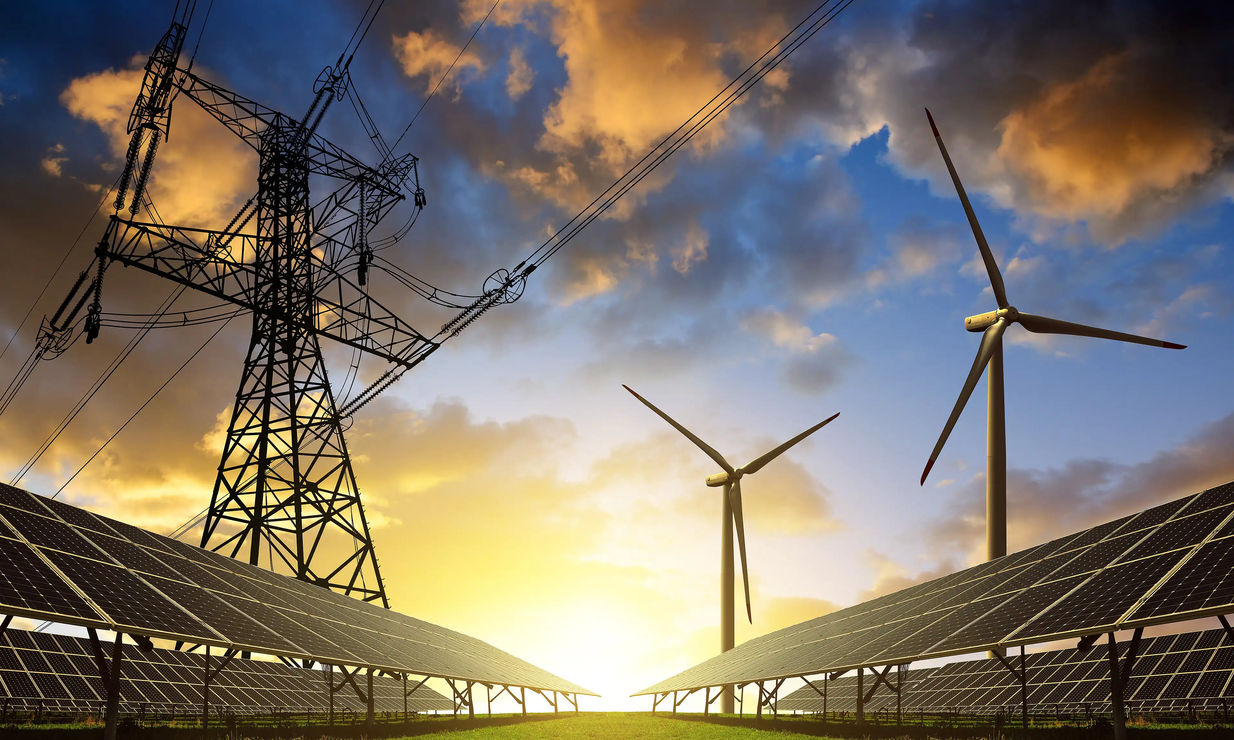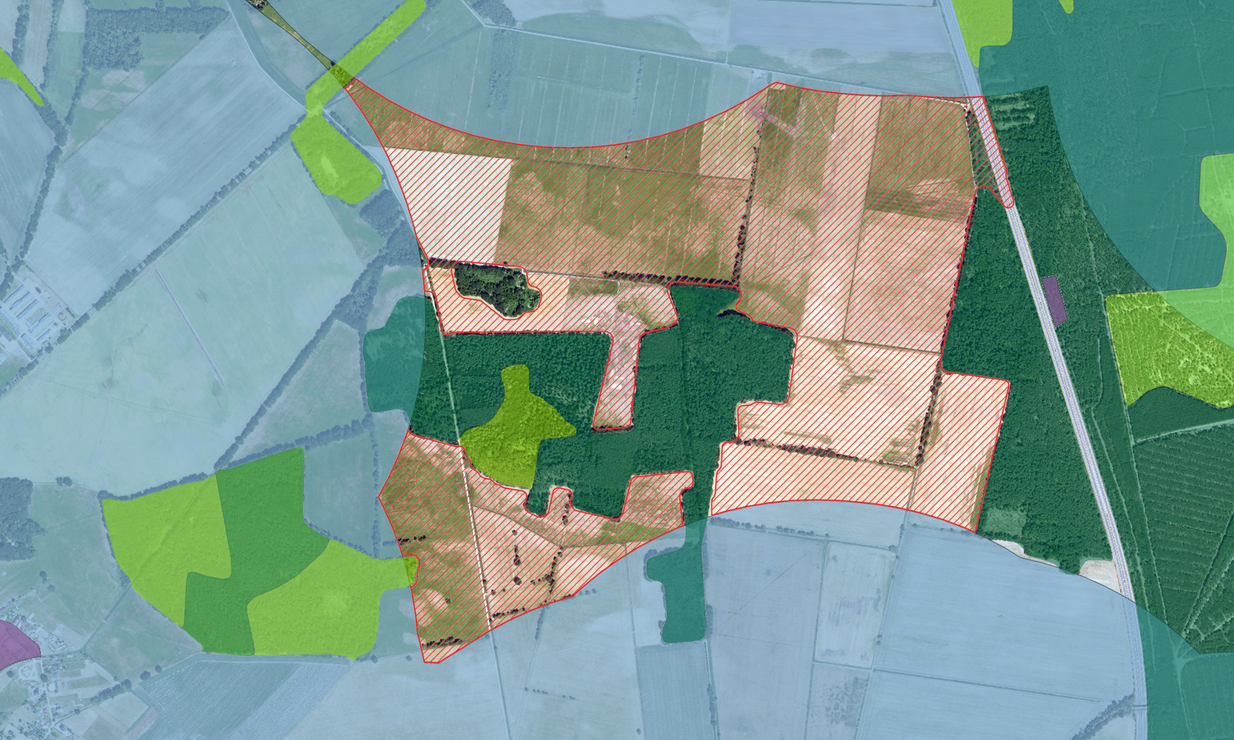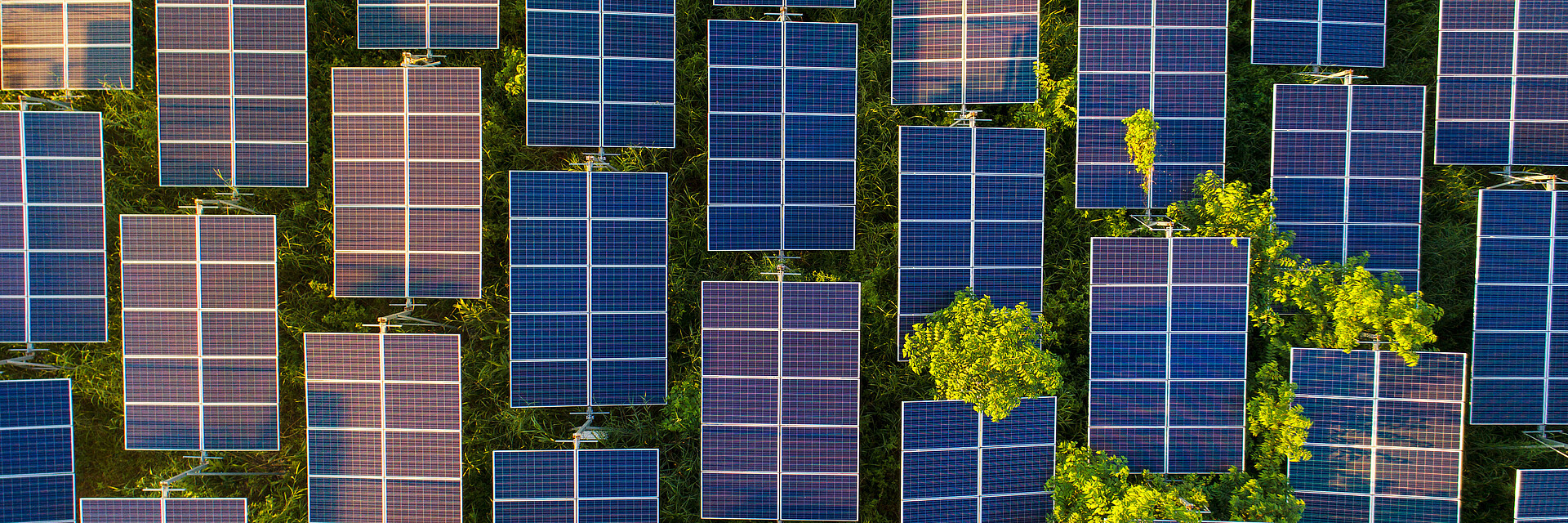- Inventory of existing infrastructure as a first step toward creating a sustainable electrification concept
- Analysis of available renewable energy sources concerning quantity and continuity
- Site selection with consideration of potential connections to the overall grid
- Demand assessment that accounts for the potential economic development of local and regional populations
- Assessment of potential hazards and impacts on existing or planned energy infrastructure in case of natural events such as floods, landslides, fires, storms or other extreme weather phenomena
- Home
- Services
- Geodata & Environmental Services
- Clean Energy
- Home
- Services
- Geodata & Environmental Services
- Clean Energy
We Support the Energy Transition
Germany aims to achieve climate neutrality by 2045. This requires the rapid implementation of innovative measures affecting nearly all sectors. The path to this goal is closely aligned with the Sustainable Development Goals (SDGs).
The energy sector itself plays a crucial role in advancing the transformation towards renewable energy sources. Efforts to achieve high efficiency must also consider ecological aspects. Key decisions include:
- Choosing green energy sources and identifying suitable locations
- Optimizing existing infrastructure
- Dimensioning new facilities and networks
- Minimizing environmental impact
These decisions can only be made through an interdisciplinary approach and require a detailed description of the factors relevant to decision-making. Geospatial analysis combines historical data and key figures with current Earth observation data. Various methods and AI-driven algorithms evaluate extensive geospatial, climate and weather data, supporting the process of sustainable energy transition.
IABG is extensively involved in energy transition processes and ensuring a basic energy supply. We help identify environmental potentials and protected features, preparing these insights for decision-making. Our solutions range from detailed national planning to extensive collaboration with development banks, where we support initial analyses for electrification projects worldwide.
Access to energy (Sustainable Development Goal SDG 7) remains a fundamental goal in many regions. Development banks empower national teams and authorities to drive this process forward. An independent and comprehensive view of national and regional conditions is essential. Modern Earth observation, combined with historical sources, provides a robust framework for objective assessments and projections of future developments.
We Support Development Projects Worldwide
IABG supports numerous initiatives aimed at integrating Earth observation capabilities into project design processes. Needs assessments tailored to local conditions support the development of sustainable and appropriately scaled infrastructure.
Renewable energy resources are subject to natural fluctuations that must be considered during design. Additionally, infrastructure elements such as cables or collectors are exposed to climatic factors requiring adequate adaptation.
With the support of the European Space Agency (ESA), we develop solutions for international energy-related development. Global players such as the World Bank and the Asian Development Bank require scalable solutions, which we collaboratively design. Our focus includes:

Green Energy - The National Market
In line with the ongoing energy transition, there is a growing demand for suitable locations for renewable energy that meet multiple criteria. In Germany, renewable sources such as wind power and photovoltaics increasingly cover energy needs. By 2022, over 46% of gross electricity consumption was generated from green sources, with the government aiming for 80% by 2030.
IABG Geodata Solutions supports the identification of potential sites for energy infrastructure through targeted and continuous monitoring in medium and very high resolution.


Our Services
- Design, planning and monitoring of renewable energy plants
- Support in identifying potential locations for energy infrastructures
- Demand and potential analyses
- Site and infrastructure planning,
- Support in achieving UN sustainability goals by participating in projects to expand clean energy, also as consortium leader
- Mapping of renewable energy resources
- Characterization of energy demand
- Inventory and documentation of energy infrastructure
- Conducting vulnerability analyses of energy infrastructures to climate and disaster risks
- Supporting grid operators with grid expansion through
- Pre-exploration of explosive ordnance
- Remote sensing-based monitoring of pipelines to support maintenance processes
- Geodata consulting
- Development and maintenance of a geoserver
- Implementation of geodata and factual data
- Tool development for the optimization of customer-specific processes
How can we help you?
Please fill in the form and we will get in touch with you as soon as possible.
